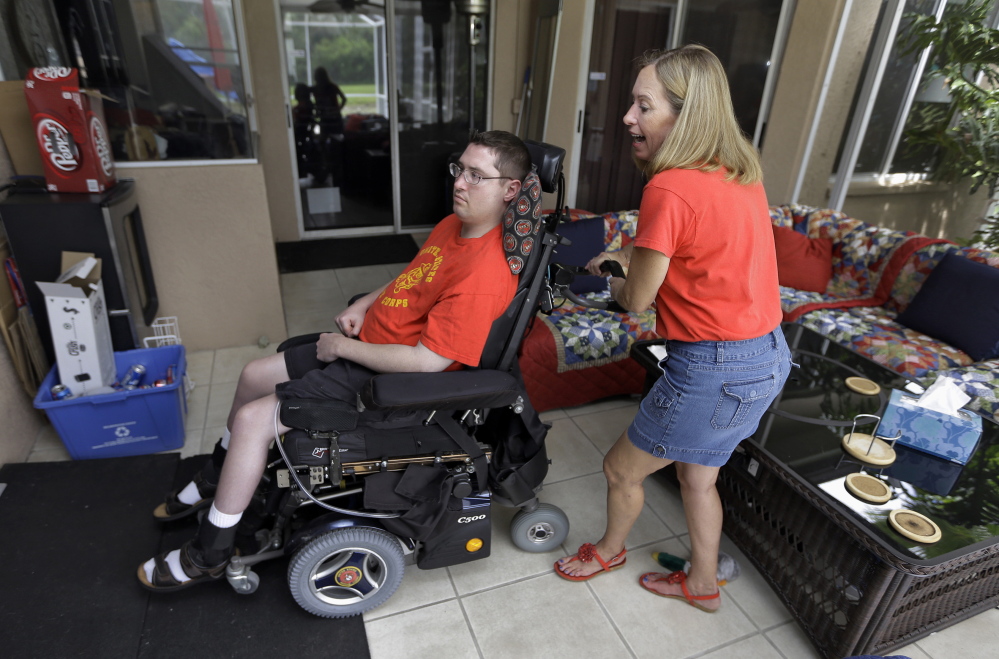WASHINGTON – A divided Senate on Thursday derailed Democratic legislation providing $21 billion for medical, education and job-training benefits for the nation’s veterans, as the bill fell victim to election-year disputes over spending and whether to slap sanctions on Iran.
With each party coveting the allegiance of the country’s 22 million veterans and their families, Republicans and Democrats blamed each other for turning the effort into a chess match aimed at forcing politically embarrassing votes.
Republicans used a procedural move to block the massive bill after Senate Veterans Affairs Committee Chairman Bernie Sanders, I-Vt., chided Republican senators for their priorities.
“I personally, I have to say this honestly, have a hard time understanding how anyone could vote for tax breaks for billionaires, for millionaires, for large corporations and then say we don’t have the resources to protect our veterans,” said Sanders, the measure’s chief author.
Even as Democrats noted that more than two dozen veterans groups supported the legislation, Republicans said they still favor helping veterans but also want to be prudent about federal spending.
“We’re not going to be intimidated on this,” said Sen. Jeff Sessions of Alabama, top Republican on the Senate Budget Committee. “We’re going to do the right things for the veterans of America.”
The fight over priorities demonstrated again the bitter divisions that have restrained the legislative process in recent years. Efforts to address immigration, a tax overhaul and job creation all seem likely to go nowhere this year.
Republicans focused much of their criticism on how most of Sanders’ bill was paid for – with funds left unspent from the withdrawal of U.S. troops from Iraq and the winding down of American involvement in Afghanistan. Republicans say those are not real savings, since no one expected those funds to continue being spent as those wars ended.
Republicans also objected to provisions letting more veterans without service-connected injuries be eligible for treatment at Department of Veterans Affairs facilities. They said that would swamp an already overburdened system. The vote sidetracking the veterans bill was 56-41 with the 56 votes supporters received falling 4 short of the 60 needed to keep it alive.
Maine’s senators split their votes, with Susan Collins, a Republican, voting against, and Angus King, and independent, voting in favor.
The showdown came after Senate Majority Leader Harry Reid, D-Nev., refused to allow votes on a Republican amendment slicing the bill’s size and adding sanctions on Tehran for its nuclear program.
President Barack Obama opposes fresh sanctions while international negotiations with Iran proceed.
Fifty-nine senators of both parties have sponsored a separate bill imposing sanctions if the talks fail, though Obama’s effort has dampened Democratic calls for a quick Senate vote. A sanctions vote could put the administration and some Democrats who favor the proposal in an awkward spot.
The White House did not issue a public statement on whether it supported the veterans bill.
Sanders’ legislation addressed everything from making more veterans eligible for in-state college tuition to providing fertility or adoption services for some wounded troops left unable to conceive.
The VA would have been given more tools to eat into its backlog of 390,000 benefit claims awaiting action for more than 125 days. The bill also would have bolstered programs for veterans who suffered sexual abuse, and would have increased dental care and provided more alternative medicine, such as yoga for stress.
In a two-year test program, some overweight veterans living more than 15 minutes from a VA gym would have been given memberships at private health clubs.
Benefits for some spouses of deceased veterans would have improved, and aid to relatives caring for a wounded veteran would have been expanded to include those who served before the attacks of Sept. 11, 2001.
Send questions/comments to the editors.



Comments are no longer available on this story